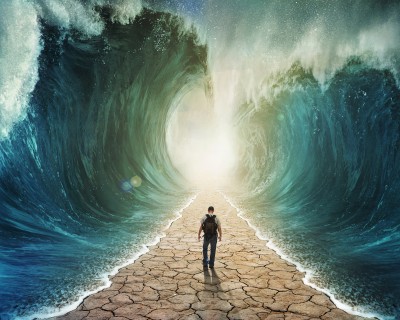He has Done The Miracle Again.
Religion is not science, nor is it mathematics, where 2 + 2 is always 4, or chemistry, where the formula for water (H₂O) remains constant across time and place. Science relies on repeatability and verifiability: the same experiment, under the same conditions, must always produce the same results. Religion, by contrast, operates in a different domain. It is not about proof in the laboratory sense, but about meaning, hope, and interpretation.
This difference matters. Religion speaks to the
"meaning of meaning" — the questions that formulas or measurements
cannot settle: Who are we? Why do we suffer? What is justice? What should we
live for? Unlike scientific facts, religious truths are often personal,
subjective, and contextual. What inspires one individual may leave another
unmoved. What one community interprets as divine intervention, another may
dismiss as a coincidence. Precisely because of this, religion requires
humility, tolerance, and an open mind.
That leaves us with the problem of interpretation. If
religious experience is personal, how then do we decide what counts as a true
religious sign, and what is merely self-serving imagination? History is full of
leaders —political, economic, and even spiritual — who have cloaked personal
ambition in the language of divine will. From wars justified as
"holy" to policies defended as "God's plan," faith has
often been used as a tool of power.
Here lies the central challenge: Where do we draw the
line between genuine faith and manipulation? If every action can be explained
away as "God's miracle" or "God's punishment," then
responsibility evaporates. Individuals and institutions can escape
accountability by shifting the burden upward, leaving injustice unaddressed on
earth while invoking heaven's approval.
Personal responsibilities often come with social
consequences. This brings us to a critical question: When do we stop
attributing every event, every success, or every failure to God and start
acknowledging our own role in shaping the world? Faith should inspire ethical
living, not replace it. To believe that God has "done the miracle
again" is one thing; to abandon our responsibility to act justly, care for
the vulnerable, and confront corruption is another. It's crucial to understand
that our actions matter, and we have the power to shape our world.
In today's social and political reality, this
distinction is urgent. Consider some of the undeniable facts facing many
societies today. Corruption in governance often survives under the guise of
religious legitimacy, with officials claiming divine sanction while siphoning
resources meant for the public good. Likewise, gender and minority rights are
too often curtailed by appeals to "religious tradition," leaving
vulnerable groups silenced. Not all. How about environmental crises, which are
exacerbated when disasters are framed merely as "acts of God,"
instead of wake-up calls for human responsibility in stewardship? It is when
people refuse accountability by attributing everything to divine will that
societies stagnate, injustices multiply, and religion itself is misrepresented.
Faith must be used as a tool for empowerment,
not an excuse. True faith does not absolve us of responsibility — it
deepens it. Faith must not lead to disobedience of law and lawlessness. Belief
in God's power should not translate into human passivity. On the contrary,
religion at its best empowers believers to be agents of justice, compassion,
and healing. To act with integrity, to resist corruption, to stand in
solidarity with the oppressed — these are not betrayals of faith but its most
authentic expressions. Let faith be the source of your strength and inspiration
to do good in the world.
Seen this way, miracles are not only divine
interventions that suspend natural laws. Miracles also occur when individuals
and communities, inspired by faith, refuse to misuse religion for selfish ends
and instead take responsibility for building a fairer society.
To build a responsible society, we must spare God the
misrepresentation. Being honest and accountable creatures is not to deny God,
but to honour God by living truthfully. When we stop misusing divine language
as a cover for our own failings, we spare our societies the corruption of mind
— and perhaps, as the essay suggests, we even spare God some headaches and
misrepresentation. Let's uphold the values of honesty and accountability, as
they are the foundation of a responsible and just society.
Faith, then, should not be an escape from responsibility but a call into it. If God has "done the miracle again," let us not respond with complacency but with commitment: to justice, to accountability, and to a society where belief inspires integrity rather than excuses and failures.
Video: https://youtu.be/DtT4XHVasqU
To enjoy more Kata Kata articles, cartoons, skits, animated videos,
comics, Naija short
movies, games, kids’ stories, quotes, proverbs & more — all in one
place – be part of
Kata Kata Exclusive Partnership with MTN (Nigeria).
For unrestricted access to Kata Kata content, subscribe to our platform: katakata.org/mainmenu
Get ready for fun!!!

